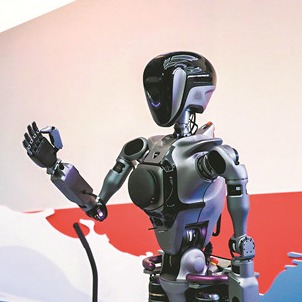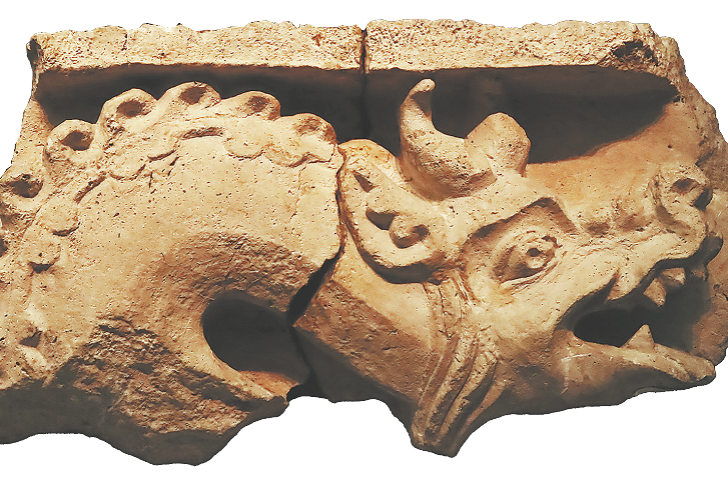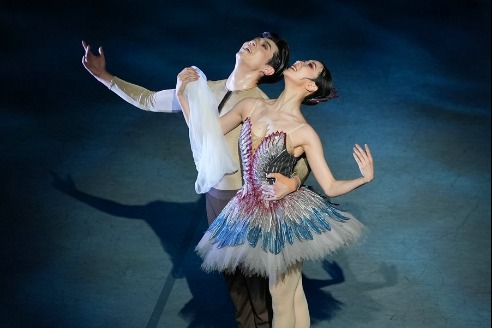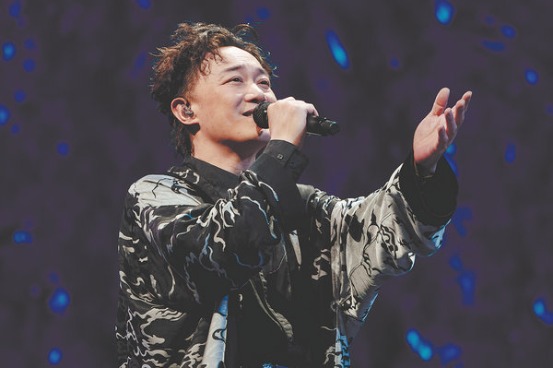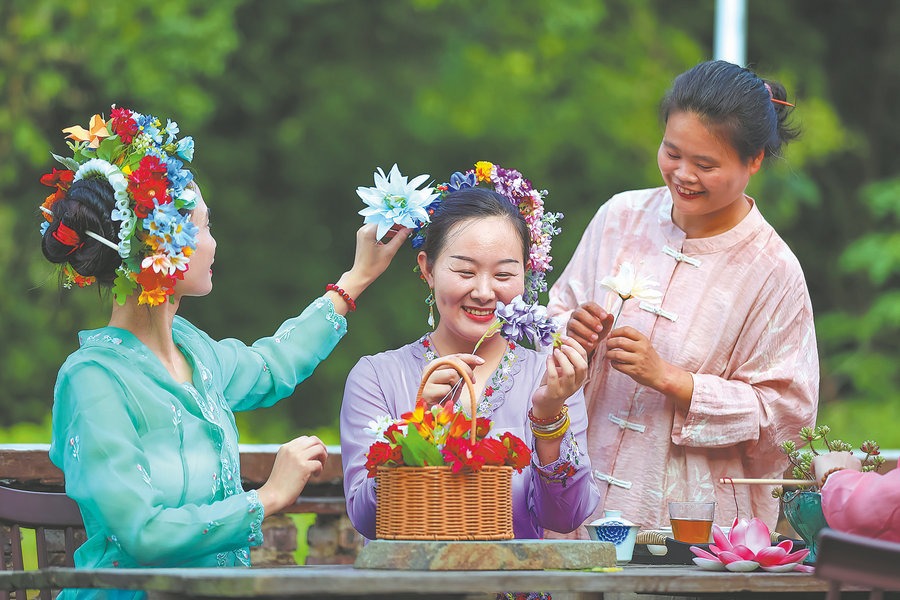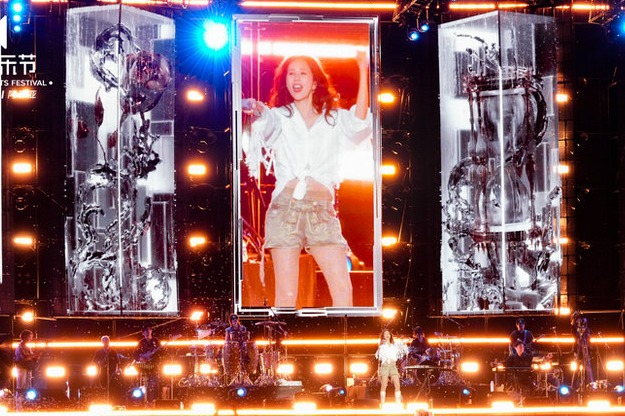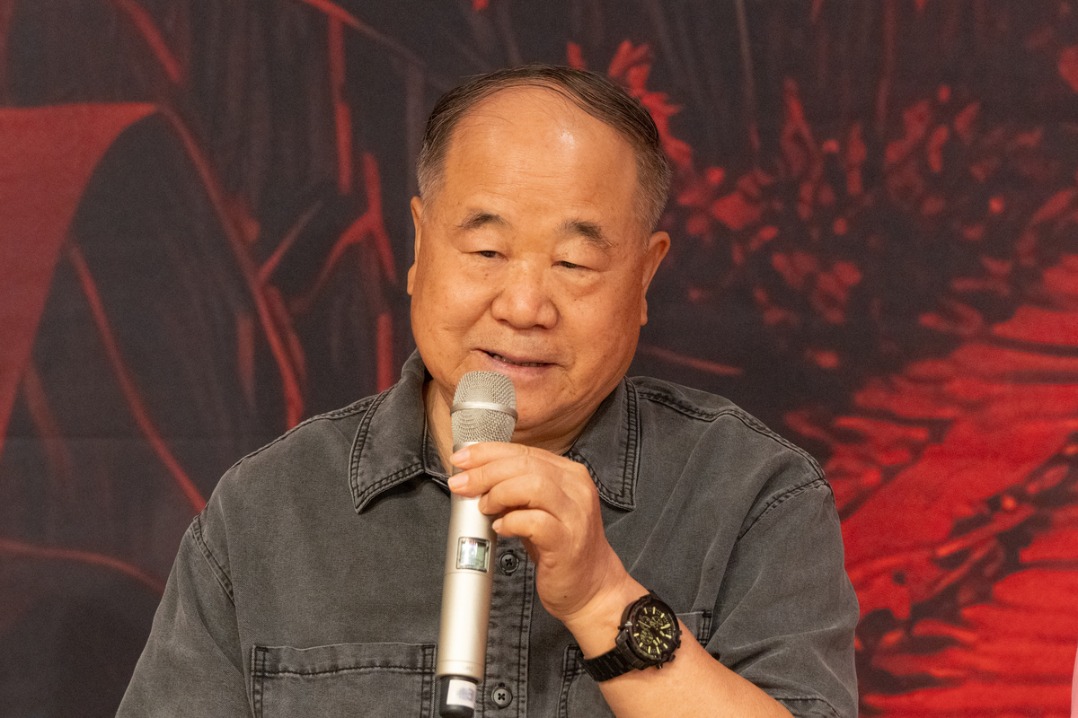Application of AI bolsters culture and museum sectors

The culture and museum sectors are witnessing the acceleration of artificial intelligence use, focusing on various fields, such as museum guidance and immersive exhibitions, as well as the identification, protection, and restoration of cultural relics, according to industry experts at a matchmaking meeting in Shanghai on Aug 25.
The city has been ramping up efforts in innovation in the sector in recent years. In 2018, the Shanghai Museum established the nation's first comprehensive data-based digital management platform. In 2021, the Shanghai History Museum launched the city's first digital twin museum system, significantly improving its digital governance capabilities.
Several immersive exhibitions at various museums across Shanghai are already utilizing advanced technologies, bringing ancient Chinese civilization back to life while offering new cultural experiences.
In cooperation with Chinese AI company SenseTime, a Fourier humanoid robot was demonstrated at the meeting, offering visitors a guided tour of the museum.
Xinke Animation Co set up an immersive space with virtual reality on site to take visitors on an expedition into the mysterious Xixia Imperial Tombs.
BimoAI also showcased an interactive terminal named "BimoAI Camera", which offers visitors to museums and tourist spots instantly customized AIGC (artificial intelligence-generated content) photos and newspapers.
"Artificial intelligence has not only enhanced the interactivity and engagement of the visitor experience, but also optimized the management of cultural institutions and cultural relic protection," says Xiang Yihai, deputy director-general of the Shanghai Municipal Administration of Cultural Heritage. "Museums are evolving from traditional exhibition spaces into vibrant interactive venues, and AI is becoming a 'super translator' for telling the stories of Shanghai."
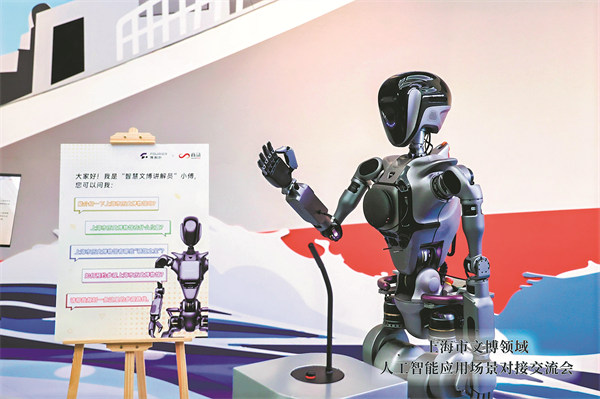
Several cooperative projects were signed during the event to further promote AI's application scenarios in the cultural and museum sectors.
Among them, the Shanghai Museum will partner with BesTV to develop a digital twin museum, and the Shanghai History Museum will work with four technology companies to deepen the exploration of sectors such as spatial scanning, data collection, modeling, digital copyright management, and intelligent guided tours.
At the meeting, Shanghai Jiao Tong University also unveiled the construction of a research center, which will optimize the protection of cultural heritage architecture. With AI technologies, the center will focus on key areas, including the diagnosis of cultural heritage architectural defects, risk prediction, and protection measures.
"We see huge potential and promising prospects for China's cultural tourism market. For instance, the market demand for our BimoAI Camera is growing in Shanghai. We are in talks with about 100 museums and cultural tourism sites about potential collaborations," says Eric Tang, founder and CEO of BimoAI. "I am confident that the application of AI in this sector will continue to grow."


